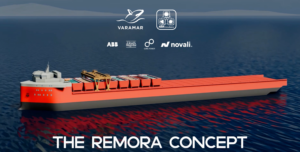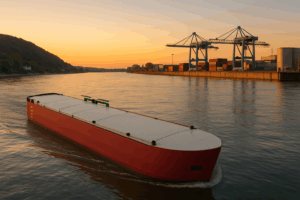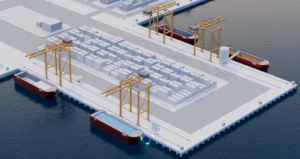The shipping industry is responsible for a significant portion of global greenhouse gas emissions, with cargo ships emitting millions of tons of CO2 every year. As a result, there is growing pressure on the industry to reduce its carbon footprint and transition to more sustainable practices. One potential solution is the use of electric hybrid cargo ships.
Electric hybrid cargo ships combine traditional fossil fuel-powered engines with electric propulsion systems, using batteries to store energy and power the ship’s electric motors. This hybrid system allows ships to operate with lower emissions and higher fuel efficiency than traditional cargo ships.
The future of electric hybrid cargo ships looks promising, as technological advancements and increased investment in sustainable shipping practices continue to drive innovation in the industry. Here are a few key trends that are shaping the future of electric hybrid cargo ships:
- Advancements in Battery Technology: One of the biggest challenges facing electric hybrid cargo ships is the need for reliable, high-capacity batteries. Fortunately, recent advancements in battery technology have led to the development of more efficient and powerful batteries that can store larger amounts of energy. As battery technology continues to improve, electric hybrid cargo ships will become more practical and cost-effective.
- Increased Investment in Sustainable Shipping: Governments, investors, and industry leaders are increasingly recognizing the need for sustainable shipping practices. This has led to increased investment in technologies like electric hybrid cargo ships, as well as initiatives to reduce emissions and improve fuel efficiency in the shipping industry.
- Growing Demand for Sustainable Shipping: Consumers are becoming more conscious of the environmental impact of shipping and are increasingly demanding sustainable shipping options. This has led to a shift in the industry towards more sustainable practices, including the use of electric hybrid cargo ships.
- Development of Infrastructure: As the use of electric hybrid cargo ships becomes more widespread, infrastructure will need to be developed to support their operation. This includes the development of charging and refueling stations for batteries and alternative fuels.
- Collaboration and Partnerships: Collaboration and partnerships between industry players will be critical to the success of electric hybrid cargo ships. This includes partnerships between shipping companies, battery manufacturers, and energy providers to develop and implement sustainable shipping solutions.
While there are still challenges to be overcome, the future of electric hybrid cargo ships looks promising. As the shipping industry continues to prioritize sustainability and innovation, electric hybrid cargo ships are likely to play an increasingly important role in the transportation of goods around the world. By reducing emissions and improving fuel efficiency, electric hybrid cargo ships offer a sustainable and practical solution for the shipping industry in the years to come.

IMAGE 1 – State of the art Battery to be applied in MBM Shipdesign vessel.





